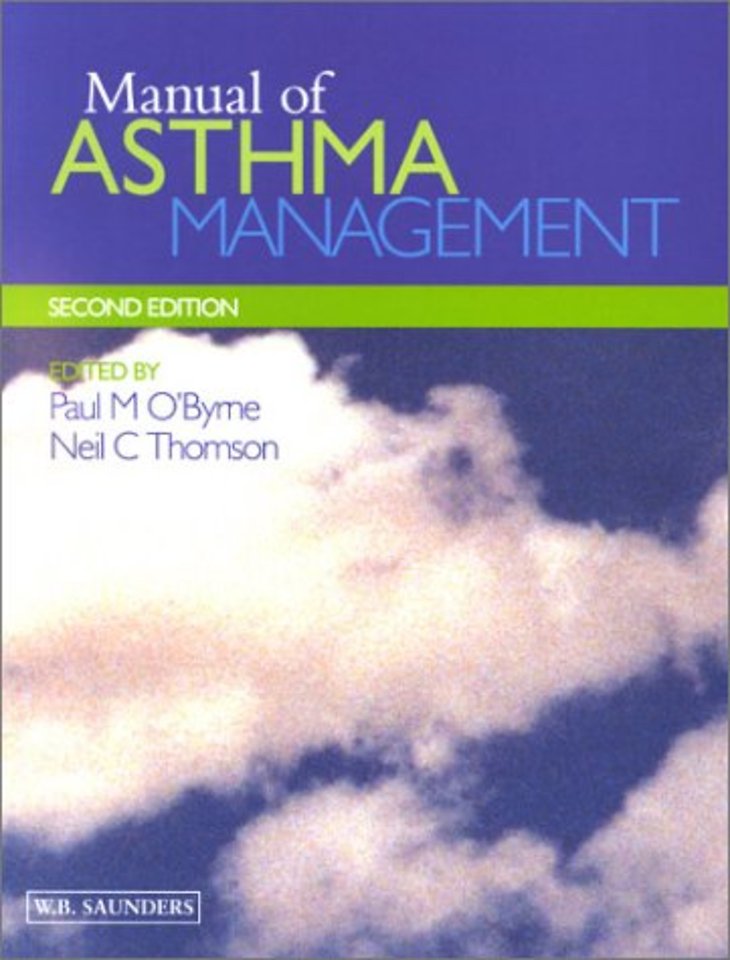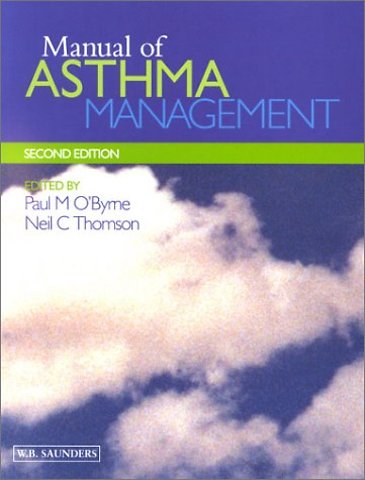EPIDEMIOLOGY AND PATHOGENESIS OF ASTHMA<br>1 Definition, classification, epidemiology and risk factors<br>2 Natural history<br>3 Pathogenesis<br><br> DIAGNOSIS AND INVESTIGATIONS OF ASTHMA<br>4 Triggers of asthma<br>5 Diagnosis in children<br>6 Diagnosis in adults<br>7 Pulmonary function tests<br>8 Provocation tests<br>9 Investigations of allergy<br>10 Examination of sputum, exhaled gases and nasal cytology<br>11 Bronchoalveolar lavage and bronchial biopsies<br><br> ASSESSMENT AND TREATMENT OF ASTHMA<br>12 Assessment of asthma control: symptoms, drug use, PEF, severity<br>13 Assessment of asthma control: quality of life<br>14 Assessment of asthma control: markers of inflammation<br>15 Primary prevention of asthma<br>16 Secondary allergen avoidance measures<br>17 Corticosteroids<br>18 Anti-allergic drugs<br>19 Immunosuppressive agents<br>20 Mediator antagonists and other new agents<br>21 Bronchodilators<br>22 Delivery systems<br>23 Immunotherapy<br>24 Other forms of treatment<br>25 Patient education<br>26 Self-management plans<br>27 Assessment of compliance<br> MANAGEMENT OF ASTHMA<br>28 General principles<br>29 Management of chronic asthma in children<br>30 Management of acute asthma in children<br>31 Management of chronic asthma in adults<br>32 Management of acute asthma in adults<br>33 Specific problems: occupational asthma<br>34 Specific problems: asthma induced by aspirin and other non-steroidal anti-inflammatory drugs<br><br>35 Specific problems: allergic bronchopulmonary aspergillosis<br>36 Specific problems: exercise-induced asthma<br>37 Specific problems: nocturnal asthma<br>38 Specific problems: asthma in pregnancy and pre-menses<br>39 Specific problems: corticosteroids resistant asthma<br>40 Specific problems: psychological factors<br>41 Specific problems: gastro-oesophageal reflux and asthma<br>42 Specific problems: cough<br>43 Specific problems: chronic rhinosinusitis and asthma<br>44 Specific problems: food allergy in asthma<br>45 Specific problems: difficult asthma<br>46 Specific problems: steroid-induced side effects<br>47 Acute complications of asthma<br>48 Chronic complications of asthma<br> RUNNING AN ASTHMA SERVICE<br>49 Primary care<br>50 Hospital practice<br>51 Audit in asthma<br>52 Economics of asthma

